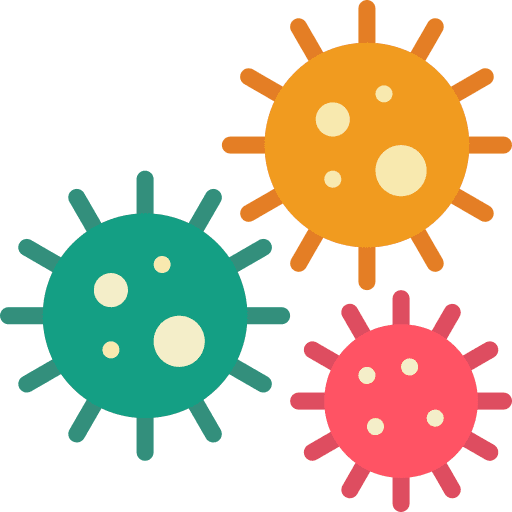Communicable Disease
A communicable disease is an illness caused by an infectious agent, such as bacteria, viruses, fungi or parasites, and/or toxins, and can usually be passed from one person to another.
The Duplin County Health Department is responsible for the tracking of Communicable Diseases in Duplin County residents. Staff conducts contact investigations, and evaluations of disease, provides guidance on treatment to health care providers, and monitors patients’ course of illness to provide follow-up for reportable diseases. Communicable disease reporting under State law is a basic feature of our societal mechanisms for the protection of public health. North Carolina law mandates healthcare providers and laboratories to report over 70 diseases or conditions to their local health department. Some examples of reportable communicable diseases include Hepatitis A, B & C, coronavirus, influenza, measles, salmonella, and other foodborne illnesses.
Some ways in which communicable diseases spread are:

- Physical contact with an infected person:
- Touch (staphylococcus)
- Sexual Intercourse (chlamydia, gonorrhea, HIV)
- Fecal/Oral transmission (hepatitis A)
- or Droplets (influenza, coronavirus)
- Contact with a contaminated:
- Surface or object (norovirus)
- Food (salmonella, E. coli)
- Blood (HIV, hepatitis B)
- or Water (cholera)
- Bites from insects or animals capable of transmitting the disease
- Mosquito (malaria, yellow fever)
- Animals: (rabies, Ebola)
- Travel through the air (tuberculosis, whooping cough, and measles)
Protect Yourself
- Handle and prepare food safely. Wash hands, utensils, and surfaces when preparing food. Don’t leave food out; refrigerate promptly.
- Wash hands often
- Clean and disinfect surfaces. Cleaning with soap and water is usually enough unless someone in the house is ill. Use an EPA-certified disinfectant, dilute bleach solution, or rubbing alcohol.
- Cough and sneeze into your sleeve.
- Don’t share personal items that can’t be disinfected, like toothbrushes, razors, or needles. Needles should be thrown away properly after one use.
- Get vaccinated, vaccines prevent many infections and diseases.
- Avoid touching stray or wild animals.
- Stay home when you are sick.
Links:
County Health Rankings & Roadmaps
Center for Disease Control (CDC)

